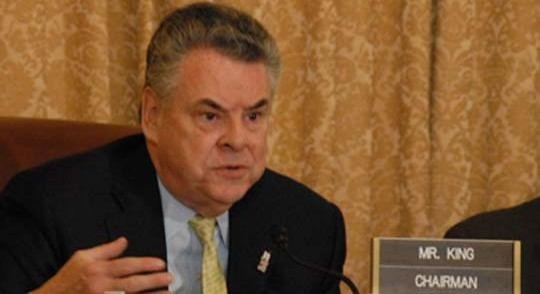Self-Radicalization: A Key Term as King's Muslim Hearings Set to Start

Rep. Peter King of New York recently used the term Self-Radicalization as he discussed the hearings set to start on Thursday investigating radicalization and the Muslim community in the United States.
The hearings at the House Committee on Homeland Security are set to go forward on Thursday at 9:30 a.m. as critics question the fairness of singling out one religious community, while noting that radicalization also exists independently of the Muslim community.
A very small part of Muslims in the United States have been self-radicalizing, King said in a televised interview on Sunday..
We're talking about the affiliates of Al Qaeda who have been radicalizing, and there's been self-radicalization going on within the Muslim community, within a very small minority, but it's there. And that's where the threat is coming from at this time, he said.
A top U.S. intelligence official used the term on February 10 at a separate congressional hearing, referring to Al Qaeda, but not linking it to the overall Muslim community.
We're especially focused on al-Qaeda's resolve to target Americans for recruitment, and to spawn affiliate groups around the world. We also see disturbing instances of self-radicalization among our own citizens, James Clapper, the Director of National Intelligence, told a panel of lawmakers.
He said the 'Intelligence Community' helped to disrupt plots and provide information leading to the arrest of homegrown violent extremists in the United States.
Radicalization does not only take place at in-person meetings, but can also happen through online interactions, according to Frank Cilluffo, the director of the Homeland Security Policy Institute at George Washington University.
He told Senate lawmakers at a 2007 hearing that the Internet has empowered terror networks to expand their reach beyond national borders.
Internet chat rooms are now supplementing and replacing mosques, community centers and coffee shops as venues for recruitment and radicalization by terrorist groups like al Qaeda, he said in testimony at a hearing investigating the Internet as a portal to violent Islamist extremism.
Cilluffo said at the time that while the Internet was once used primarily to support operations, it had been increasingly used to spread radical ideologies faster, wider, and more effectively than ever before possible.
King on Sunday cited three incidents and individuals which involved killings or the threat of killings the over the past two years with ties to Al Qaida.
The first involves Army psychiatrist Major Nadal Hasan, who is accused of shooting 13 people at Fort Hood in Texas in November of 2009. The other two incidents had ties to New York. In the first Faisal Shazad pleaded guilty to setting off a car bomb in Times Square in May of 2010. In another Incident Ngibullah Zazi, a Colorado airport shuttle driver, pleaded guilty to a plotting to bomb the New York subway system.
People in this country are being self-radicalized, whether it's Major Hasan or whether it's Shahzad or whether it was Zazi in New York. These were all people who were identifying, in one way or another, with Al Qaida or Al Qaida in the Arabian Peninsula, he said.
One activist noted King's use of the term.
Self-radicalizing reflects a kind of retraction of previous statements. Maybe not in practice but in rhetoric, realizing he's not getting a good response to the hearings, said Cyrus McGoldrick, Civil Rights Manager at the New York division of the Council of American-Islamic Relations.
Self-radicalization implies that any Muslim ... could just pop up without any sign and radicalize themselves, he said.
CAIR New York helped organize a rally in Times Square on Sunday protesting the hearing's focus only on the Muslim community.
© Copyright IBTimes 2024. All rights reserved.











